Classic interview: Slipknot Vs Korn
Munky, Head, Jim Root and Mick Thomson talk roots and blazing trails
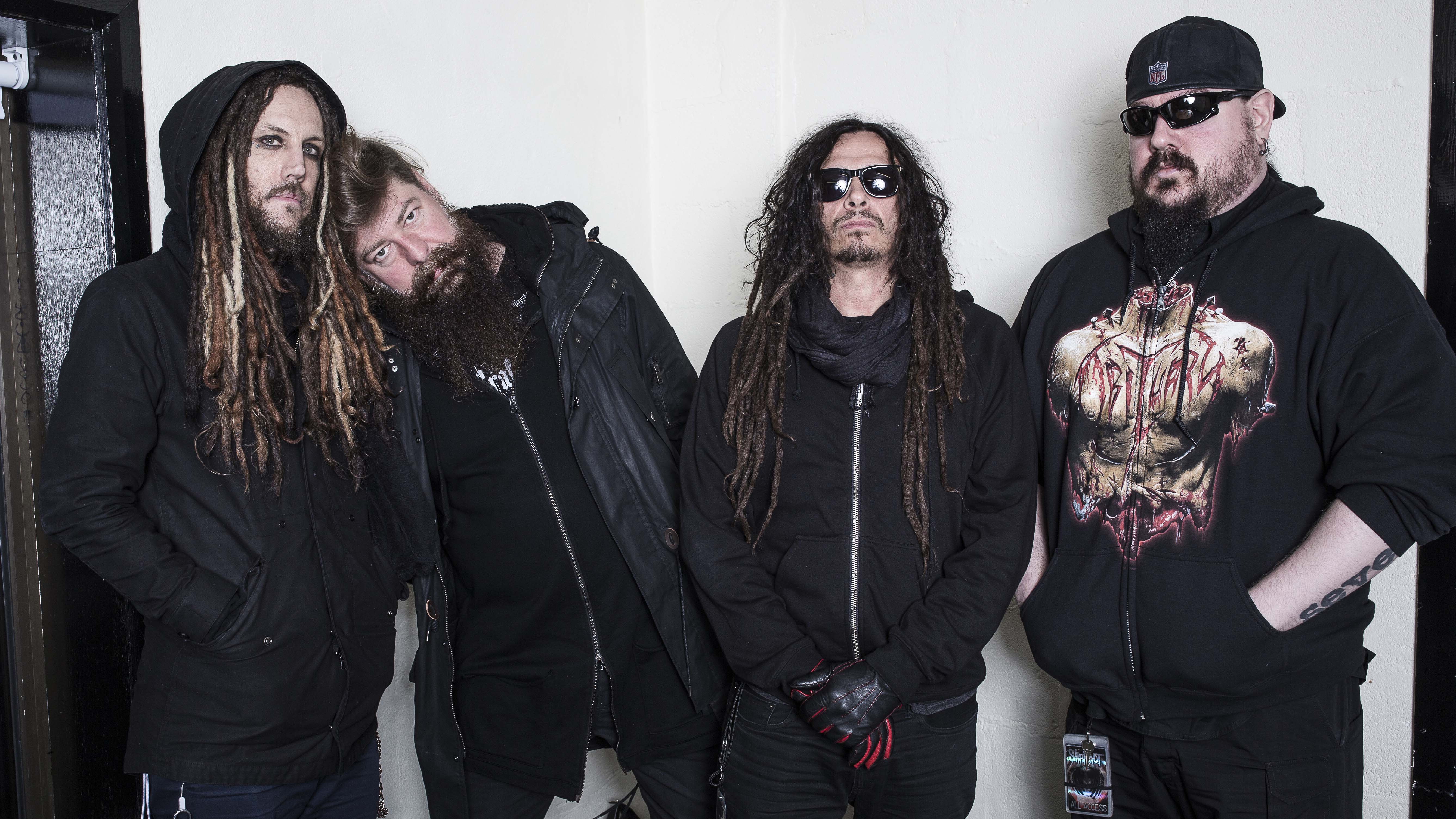
In 2015 Total Guitar's then-editor Stuart Williams sat down for a round table discussion (and it was literally a round table) with Slipknot and Korn's guitar duos. It was a one-off event, and it did not disappoint.
It's not every day you get to sit down with four guitarists who, between them, form the backbone of two of the most influential metal bands of the past 20 years. So, when the opportunity arises, there's only one thing for it.
We gathered James 'Munky' Shaffer, Brian 'Head' Welch, Jim Root and Mick Thomson in a room and sat them around an actual round table to find out why guitar solos aren't always necessary, the importance of evolution, and what it's like having knives thrown at you onstage.
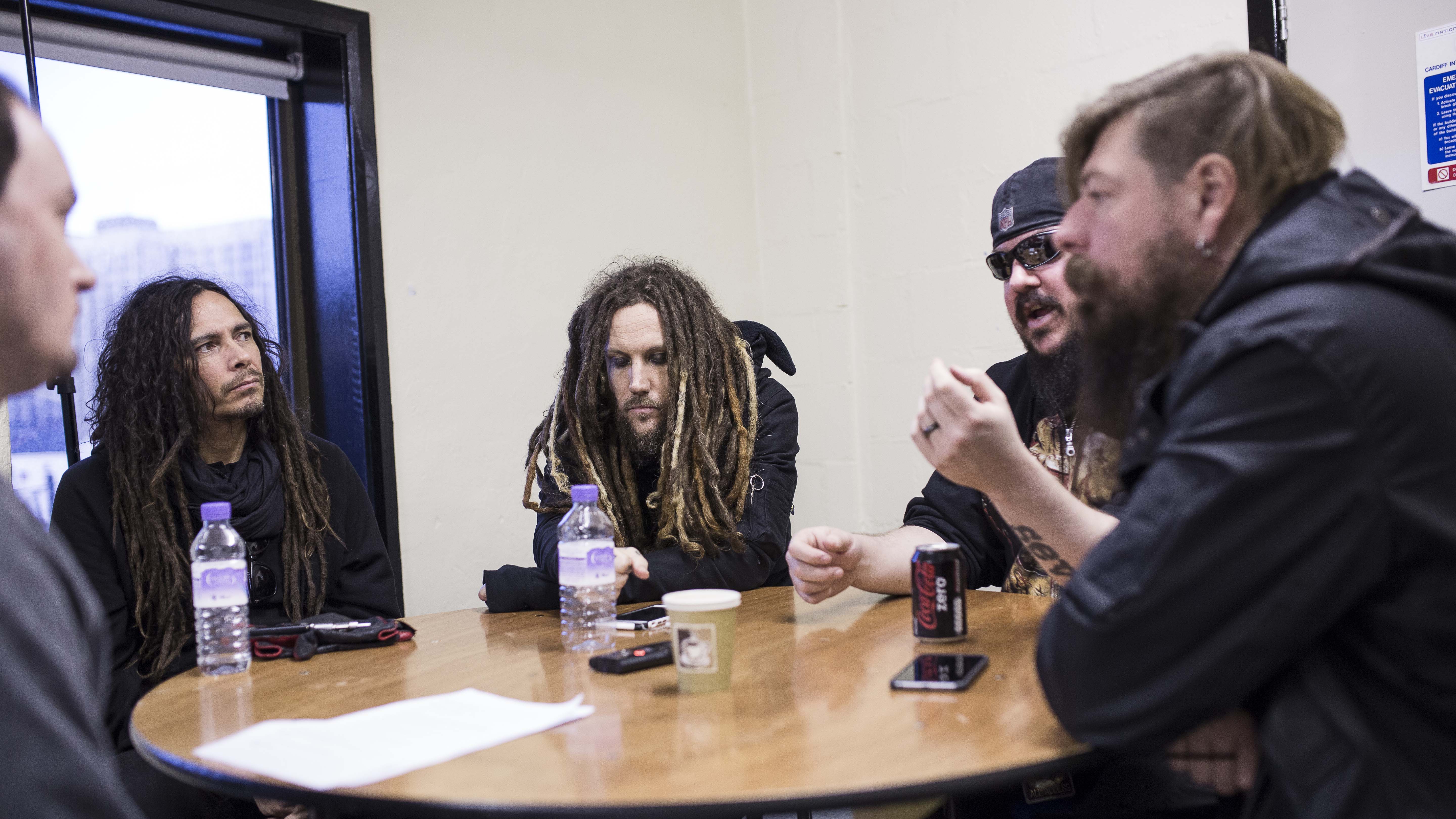
Early memories
Do you have memories of standout gigs from before you were signed?
Munky: "I remember playing with Deftones in Sacramento one time and it seemed like a huge club because it was 200 to 300 people. It was packed, people hanging on the rafters and jumping off stuff. It was that feeling of, 'We've conquered this shit!'"
"We'd never made more than $50. It was like, 'Are you f**king kidding? We can go eat after this!'"
Mick Thomson
Jim: "That was a gig before you got signed?! We can't say shit like that because we're from Iowa! In the early days, we would rent rubber workers' halls or whatever to do shows, then you'd get to the point where you could do an all-ages show on a weekend at a bar, where there were wristbands for alcohol. But it was weird for me because I was the last guy to join Slipknot, so by the time I joined they were already signed."
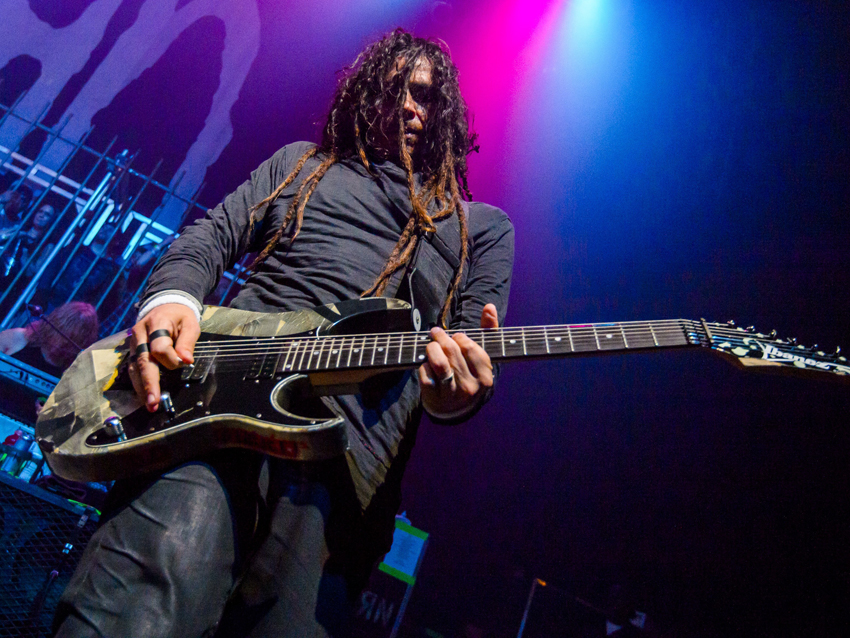
Me and my guitar interview with Korn's James 'Munky' Shaffer
Mick: "We played a New Year's Eve at this ballroom at the Hotel Fort Des Moines, and they gave us a thousand fucking dollars. We'd never made more than $50. It was like, 'Are you fucking kidding? We can go eat after this!' That was really our first paying gig that was notable."
Want all the hottest music and gear news, reviews, deals, features and more, direct to your inbox? Sign up here.
Head: "Our first gig after we finished the first album... was with No Doubt. I was like, 'Who's that singing like Rush?!'"
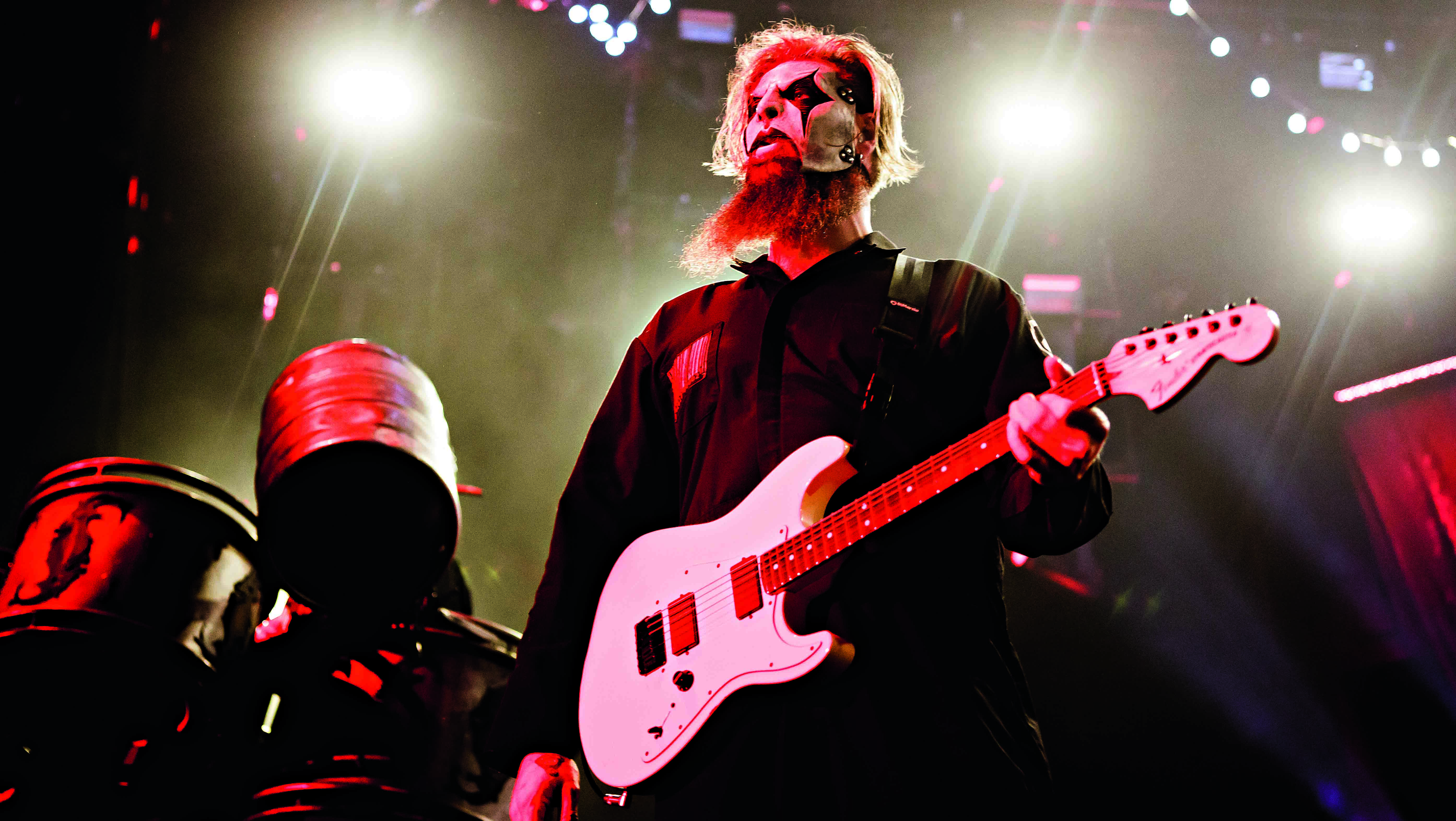
Were music scenes less fragmented back then?
Munky: "We played with so many different bands..."
Head: "Sick Of It All, House Of Pain, Bad Religion. But then once they stuck us with metal, we started growing."
Mick: "We had a lot of weird shit like that. It was the mid to late 90s, every band had a one-word title and we got thrown into a lot of that shit with bands that were completely off."
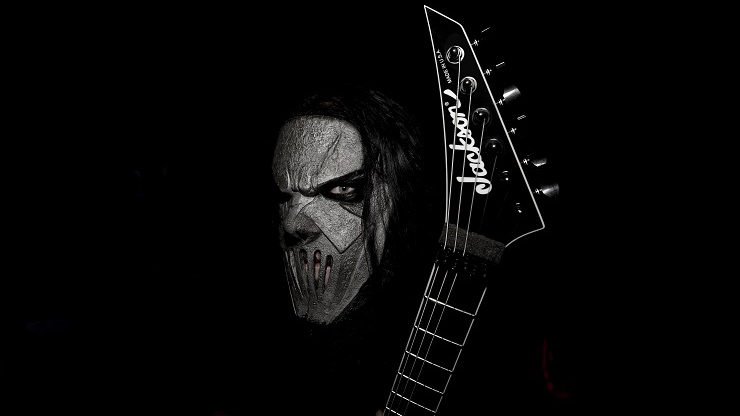
Jim: "Bands like Local H..."
Mick: "Or The Urge. We opened for them in Omaha."
Head: "We played with Sublime and Offspring, too."
Mick: "We opened the last show Acid Bath ever played. We opened the show, then they cancelled the rest of the tour and then not too long after that their bass player was killed by some fucking dickhead driving drunk."
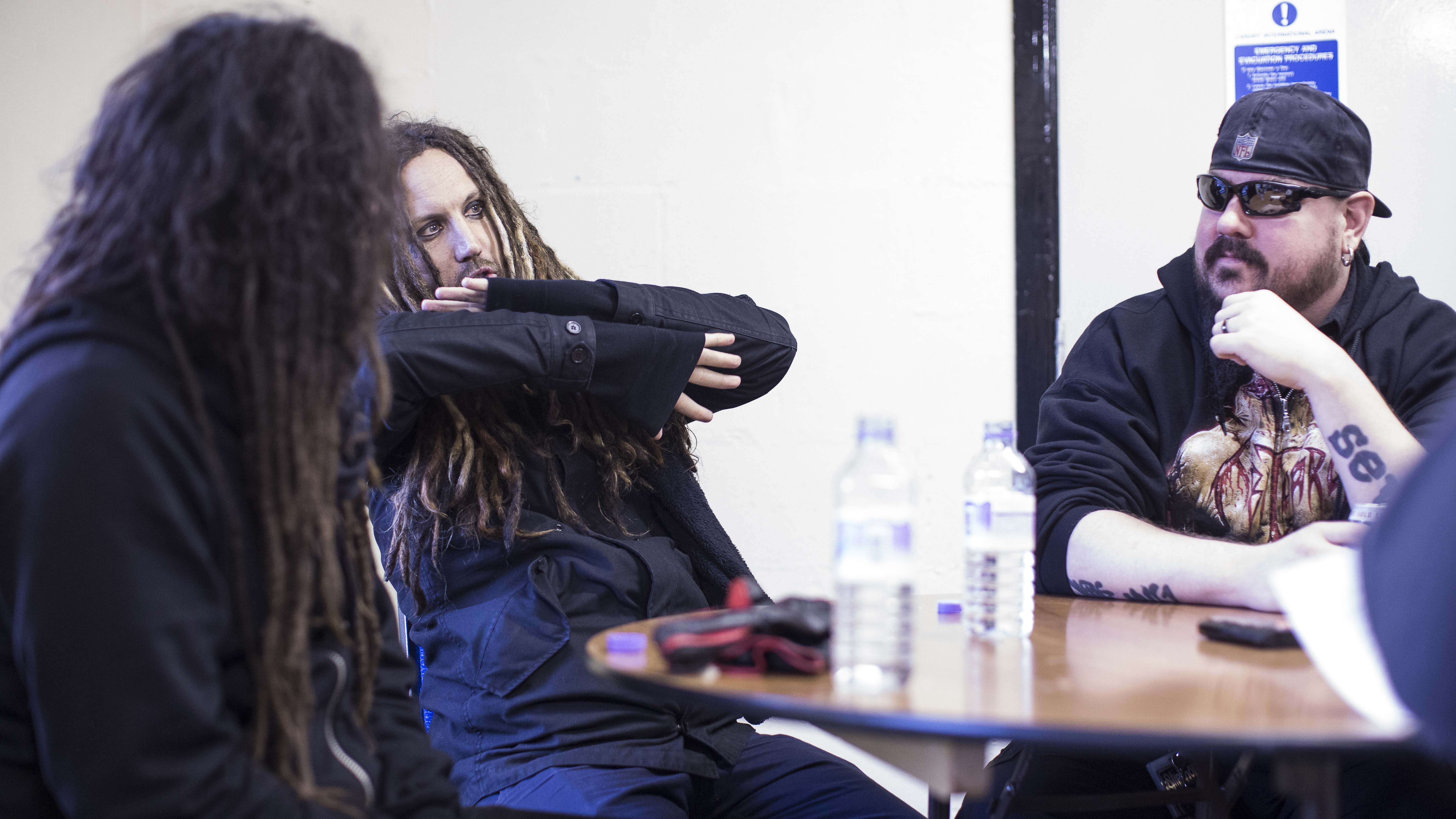
"When we were on tour with Megadeth, we had groups of people chanting, 'F**k you! F**k you!'"
Munky
Did playing those potentially ill-fitting gigs help?
Jim: "It definitely helped to build character!"
Munky: "When we were on tour with Megadeth, we had groups of people chanting, 'Fuck you! Fuck you!' It made us really mad, but it made the shows better. It also made us tell our management, 'Put us with some bands that can relate to what we're doing!'"

Mick: "I saw you guys at the Milwaukee metal fest in 1995. Your record had just come out, or was about to. It was upstairs at the Eagles Ballroom."
Head: "Were Fear Factory playing that show?"
Mick: "Yeah! I remember Fear Factory had all their keyboard shit going through the PA, and the floor was moving so much that I got to the perimeter because I thought, 'If this whole building's gonna go, I don't want to be one of the motherfuckers in the rubble!' I'd never heard your name before, but I was in the crowd at that show."
First impressions
"We got booked to play some hardcore punk festival. People threw bricks, bottles of piss, a dead rabbit"
Jim Root
Head: "Be honest!"
Mick: "I just remember seeing this [mimes Fieldy's vertical bass playing]. Just straight up and down."
Munky: "We used to get shit thrown at us. On that tour, I was jamming and I heard 'Bam!' I looked at the stage and there was an open Buck knife! I think it was sticking in the screen of my cabinet..."
Jim: "We had some shit like that in France. We got booked to play some hardcore punk festival. There were bricks, bottles of piss, a dead..."
Mick: "There was a dead rabbit! There was a rumour that went around that all the prices for tickets went up because our guarantee was so big. Which isn't even remotely true. But all these message boards got that shit rolling, and there were open knives, and someone killed a rabbit!"
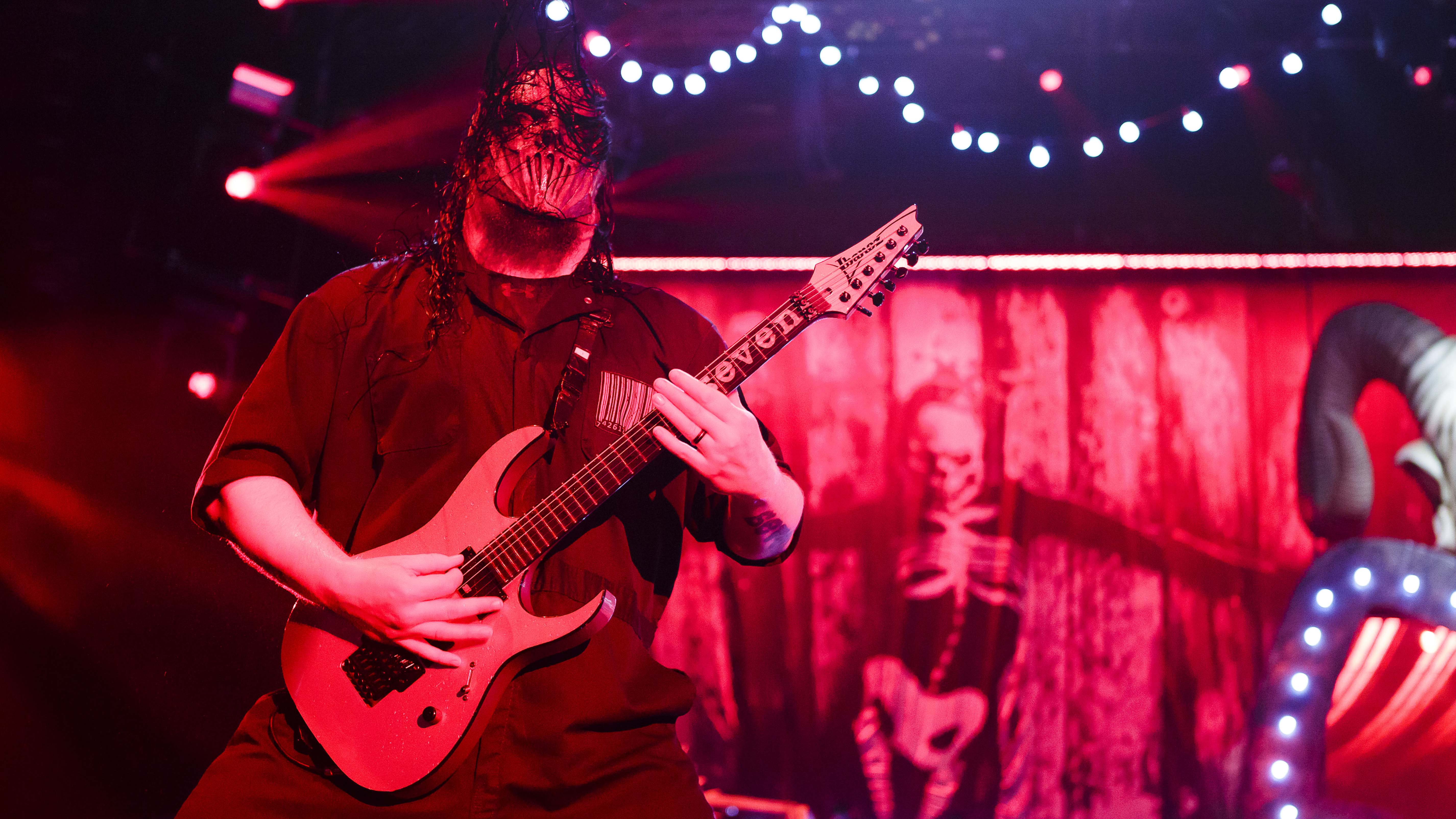
"I wasn't a heavy, heavy guy. I had to grow into it."
Head
Munky and Head, can you remember the buzz around the first Slipknot album?
Munky: "I remember [producer] Ross [Robinson] gave me the CD and was like, 'You've gotta check this out.' I had this 4x4 Suburban, and I'd just put a new stereo in it, and I cranked it up and couldn't turn it up loud enough.
"You could just feel the anger coming out of the speakers. I called him up and said, 'Holy-shit! You outdid yourself on this one!' It was like his masterpiece."
Head: "If Jonathan had the 'Why me?' thing - the emotional abuse and stuff - then Corey had the 'I'm gonna rip your insides out'. In all honesty, it was too heavy for me - I wasn't a heavy, heavy guy. I had to grow into it."
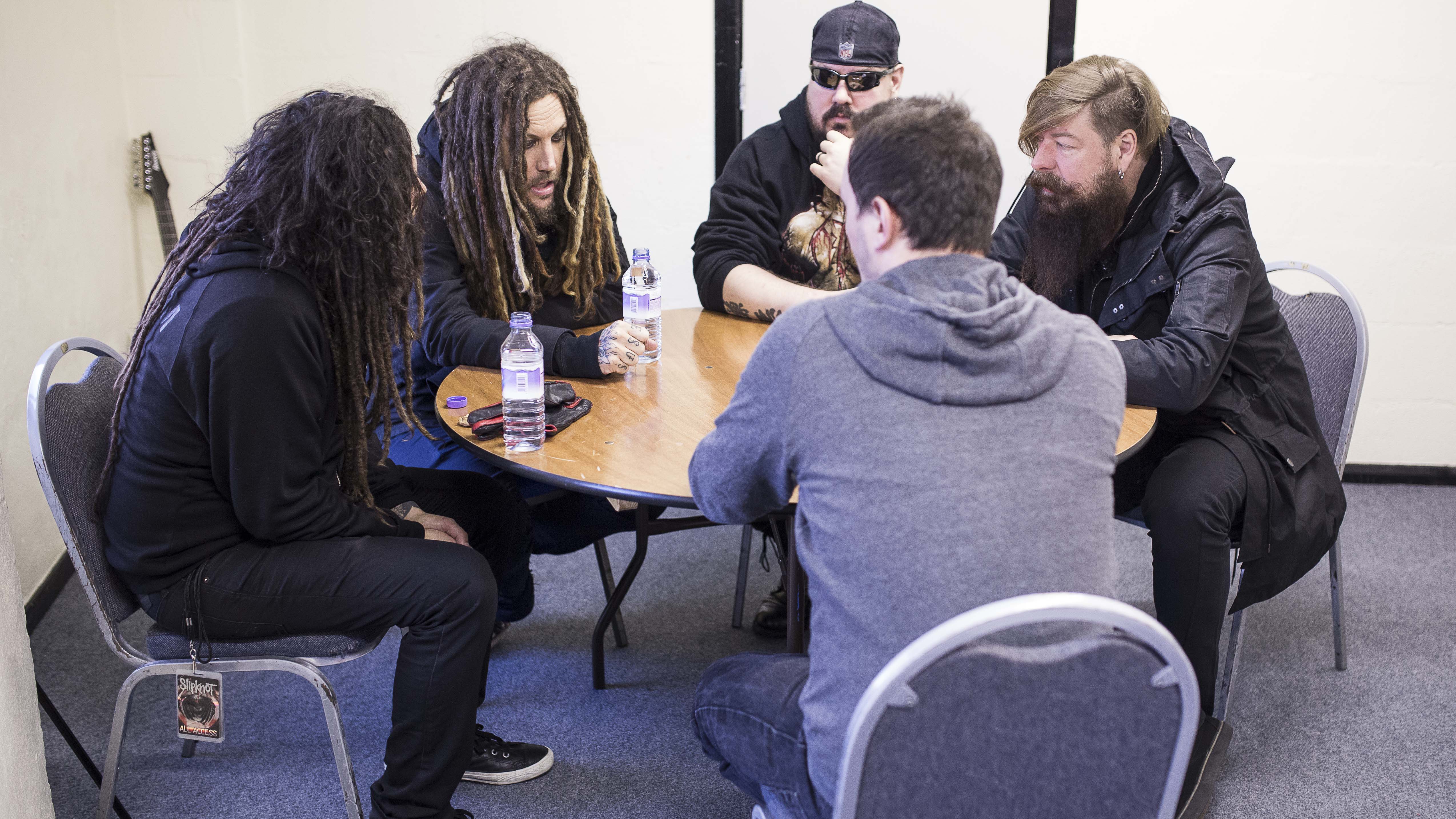
Deconstructive criticism
Both bands had their detractors in the early days. Did that spur you on?
Jim: "Everything's an evolution. You write a certain way. No two guys write the same way."
Mick: "I think everybody has tendencies. We find that in the studio: we'll take a riff that appeared earlier that's heavy, and we'll slow it down and make it crush. But then you're like, 'We're doing our Slipknot ending again!' We've had to pull the plug a few times!"
"Every record we've done, you learn so much. Our first time with Ross Robinson was an eye-opener"
Mick Thomson
Aren't those tendencies what makes you sound like you?
Mick: "Yeah, but at the same time we can't put out the same song 80,000 times!"
Head: "We do the exact same thing. We'll be like, 'Does that sound like a song from 1996?'"
Munky: "Yeah, and we have to constructively criticise ourselves and change this or that note. Or you start using the same formula, it forces you to evolve your songwriting."
Mick: "Hopefully! There are people who fall in that rut and stay there forever. We don't want to be labelled as that band. Every record we've done, you learn so much. Our first time with Ross was an eye-opener. I still have things to this day that I do differently because of Ross."
Head: "Yeah. Me, too."
Mick: "I stopped trying to be a machine. I hit stuff pretty hard live, and in the studio I tried to be perfect, he was just like, 'Oh great, you spent a lot of time practising. Why don't you just make me feel something? Why is it when we're in the studio, it's not on fire, but when I see you put on that shit and go on stage it is? Record that. Why are you backing off?' 'It's because I want it to be right'. He's like, 'Fuck right! Play that shit!'"
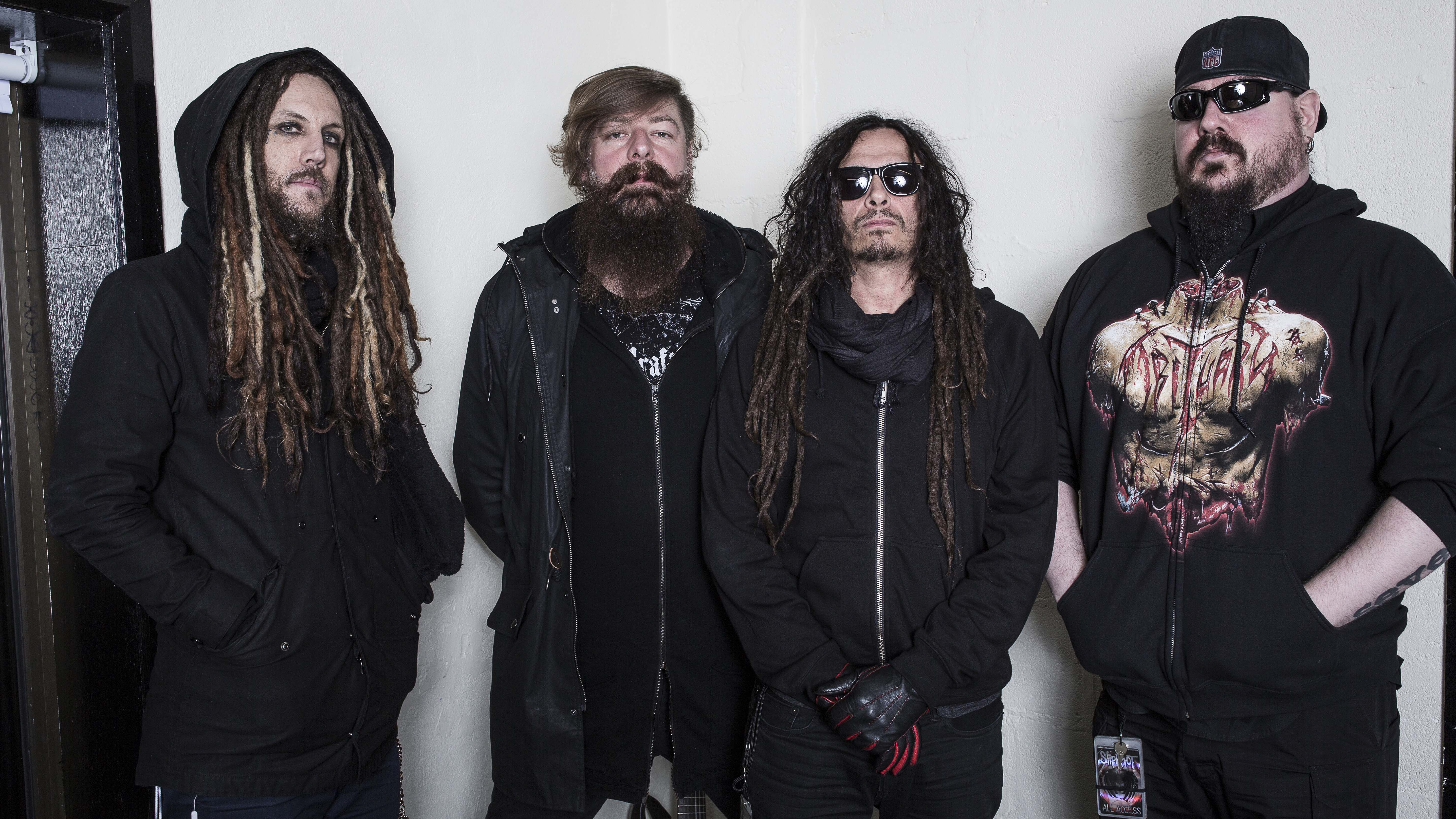
When you both emerged, soloing wasn't considered cool...
Head: "I don't know if it wasn't cool, it's just we were influenced by Faith No More and all these bands that weren't [playing solos]. It was a shame, because I practised soloing my whole life! But our approach was to create a bridge section that everyone can do whatever. Get creative, make the weirdest sounds you can, and there's Korn - so a lot of kids were influenced by us that were like, 'Man, I could do this!'"
Munky: "The way David and Fieldy played together was such a funky groove thing, we'd always try to create something noisy and melodic that highlighted that."
"The bands I was into growing up, it was all about the guitar solo. So we spent a lot of time woodshedding"
Jim Root
Mick: "One thing that I think is a huge credit to you guys is that the heaviest shit isn't necessarily the simplest, but it's not verbose. You don't need loads of notes to be heavy. So you guys would come out and play just a few notes, but crushingly heavy.
"Clown and Paul used to have you guys louder than fuck in any car all the time! That's how I got to know you. Just single strings, heavy as shit. That's kind of like the Sabbath way!"
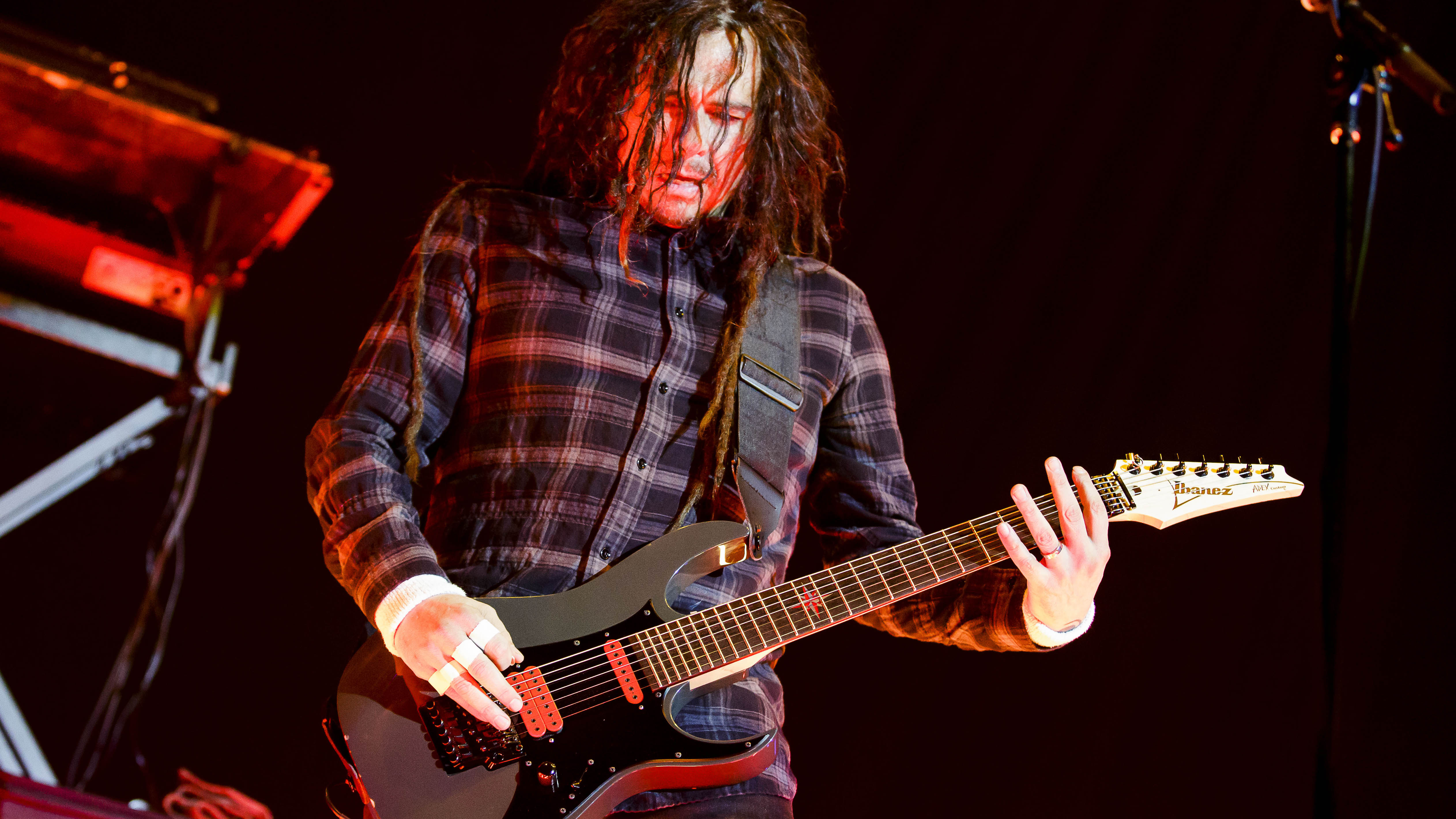
Jim: "And you make melodic stuff seem extremely heavy, too. Look at a song like Got The Life with that chord progression - it's huge."
Head: "That's not really a typical chord progression, either. I'm not sure how we picked those!"
Jim: "The bands I was into growing up, it was all about the guitar solo. So we spent a lot of time woodshedding."
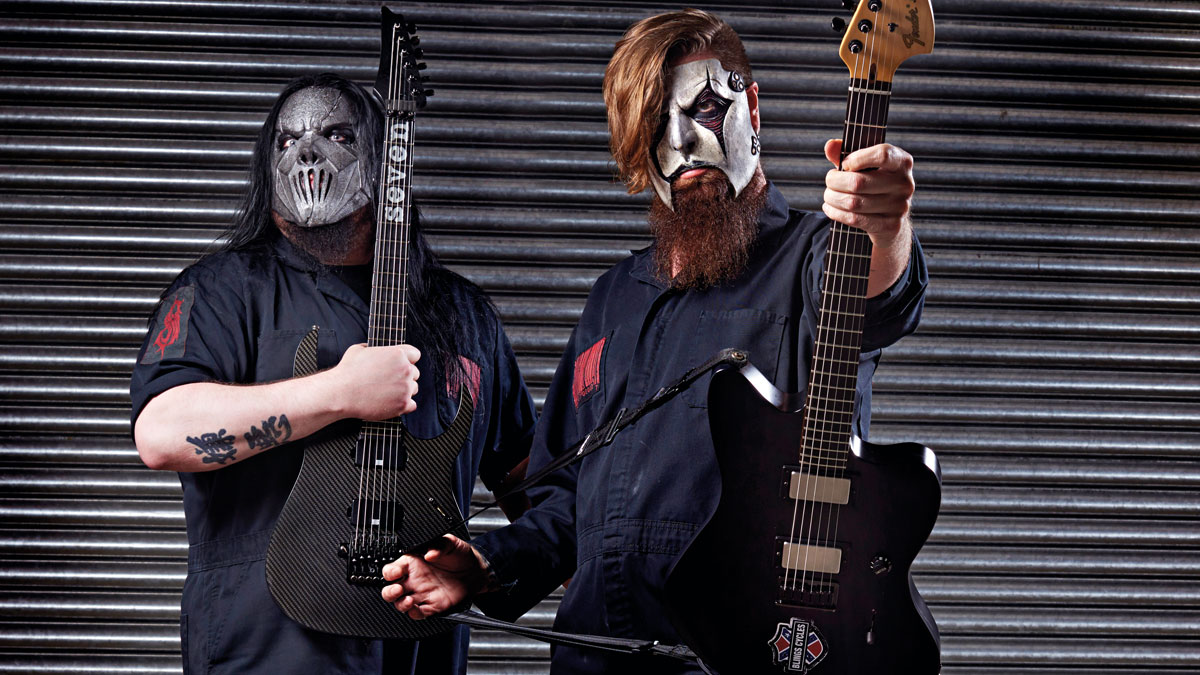
Mick: "Ross! I was so pissed off. Before we did pre-production on the first record, I had a couple of leads - I had some sweep arpeggios, stuff I'd done my whole life, and it just got stripped out because 'Solos aren't cool.' I wasn't very happy, but what an amazing learning curve [with Ross]. He was right.
"And that's what I've learned since then: if it doesn't advance the song or have some sort of reference to it lyrically, don't do it just to fucking do it. I always want to know, 'What's Corey doing in this?' because you've gotta grab a phrase, a melody. Randy Rhoads would have a lyrical, singing beauty in every one of his solos."
At 6s and 7s
"A seven-string is great, it's a tool, but when you're starting out you've gotta learn to walk before you can run"
Mick Thomson
Mick and Jim, you've stuck with six-strings...
Mick: "I own a bunch of seven-strings. I was teaching guitar when these guys were blowing up huge. I got a good deal out of the fallout of you guys with your seven-strings! Every kid was like, 'Dude, I'm gonna get a seven!' and I'd be like, 'You can't play six yet!'
"It's great, it's a tool, but when you're starting out you've gotta learn to walk before you can run. I'd always been that low because I was coming from death metal. I'd do C#, then C# drops to B and sometimes we'd be down to A."
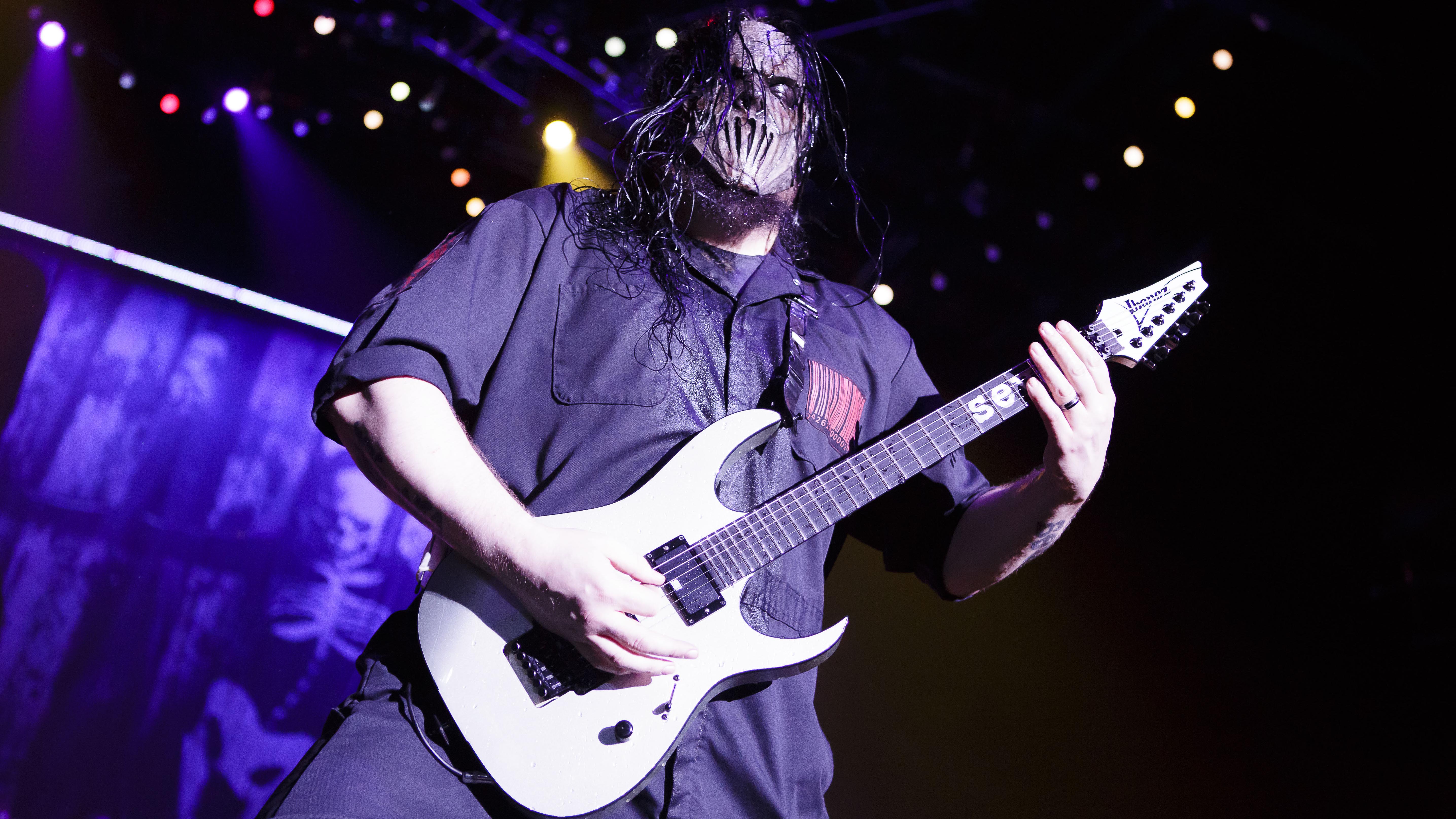
Jim: "I'm still trying to wrap my brain around my six-string! I did a cover song with Jonathan [Davis], and I had Fender drop a Billy Corgan Strat over there just so I'd have a guitar there. Ibanez made him a seven-string and I ended up using that.
"When I picked up the Billy Corgan it felt like a ukulele! If I were to ever switch or start using seven-strings, to go back to a six-string would probably be so awkward."
Munky: "We do a lot of the heavier stuff when we're tracking with the seven- strings, but when we overdub we're using Fenders and Gibsons and whatever, to bring in extra textures and tones."
Flipping the switch
How has your gear changed over the years?
Head: "Mine's the same!"
Munky: "In the rehearsal room, me and our guitar tech always try to put new pedals on his 'board. He'll mess with it a little bit and then it'll just confuse him!"

Head: "I switched to six-strings for eight years when I left Korn. I'd play baritones and tune them to drop D. That was refreshing, but the baritone necks are really long. When I came back [to Korn], I picked up the seven-string and I was like, 'What's this?!' But basically, it's the same for me, except for in the studio. We used the Kemper a lot."
"I wrote Spit It Out on this Boss rack processor - a GX700, the only thing at the guitar shop I taught at that I could afford"
Mick Thomson
Munky: "Live, we just run our Mesa/Boogies, and right now I'm using the Kemper for the clean stuff."
Jim: "Amon Amarth were using them when we played with them in Japan, and I want one. Just the lights and everything! [laughs] Did you map the clean sound from the studio? Or did you dial up one of the sounds?"
Munky: "No, I just dialled up one of the presets and we tweaked it from there."
Jim: "I want one of those."
Munky: "It works, and it's reliable and that's the main thing. Anything to lessen any cables and all that crap..."
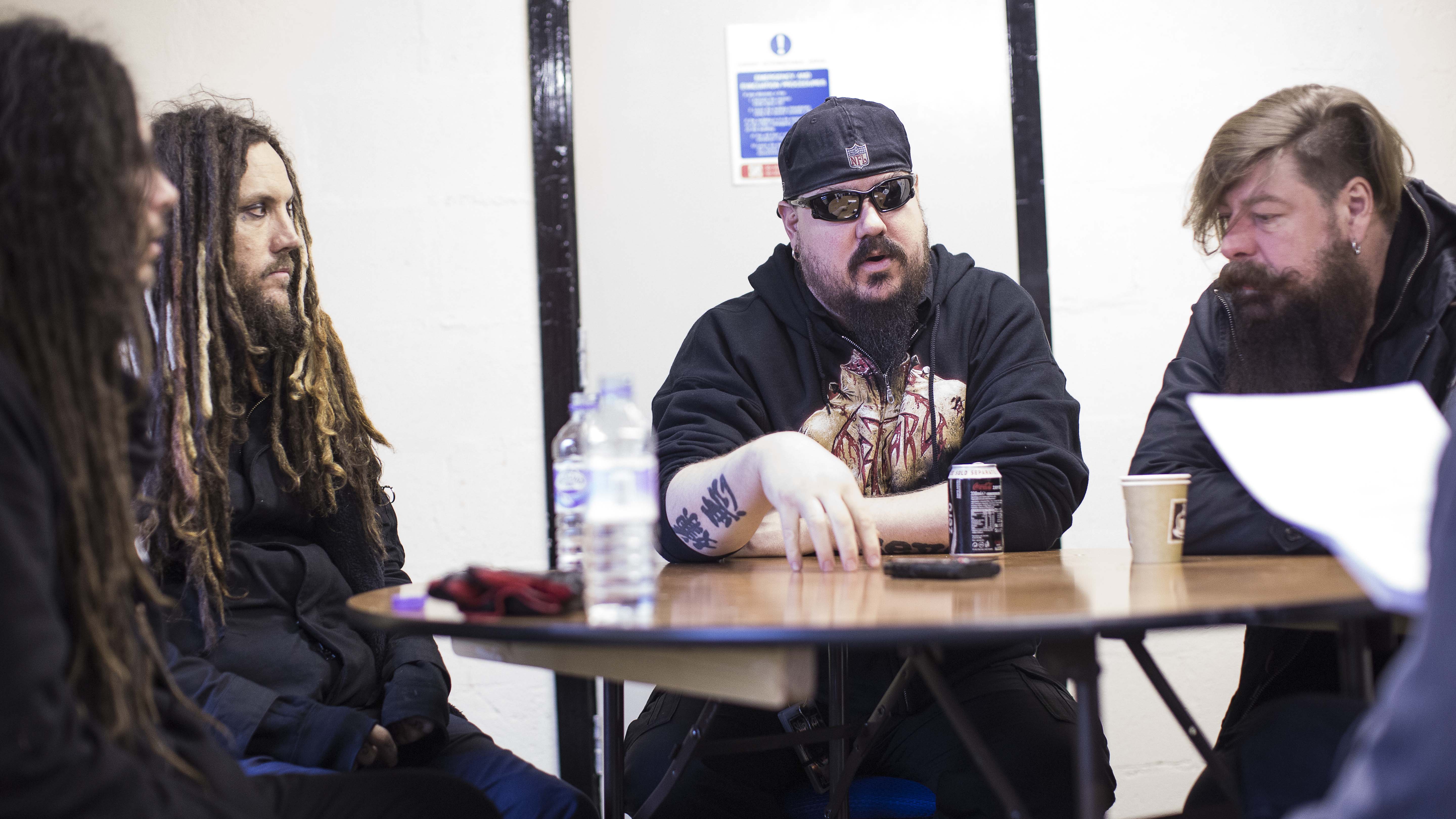
Jim: "I used an Axe-FX a while back. It's a cool tool if you can't tour with a giant guitar rack. But I could really tell the difference. I use a tube head and pedals, less is more for me. [The Axe-FX] sounds good, but the way you can tell you're playing through something digital... it was most apparent when I was soloing, I just didn't like the way it felt. So, it's a cool thing to play with, but would I use it live? Maybe for the effects or something."
Head: "Don't you need a college degree to work it?"
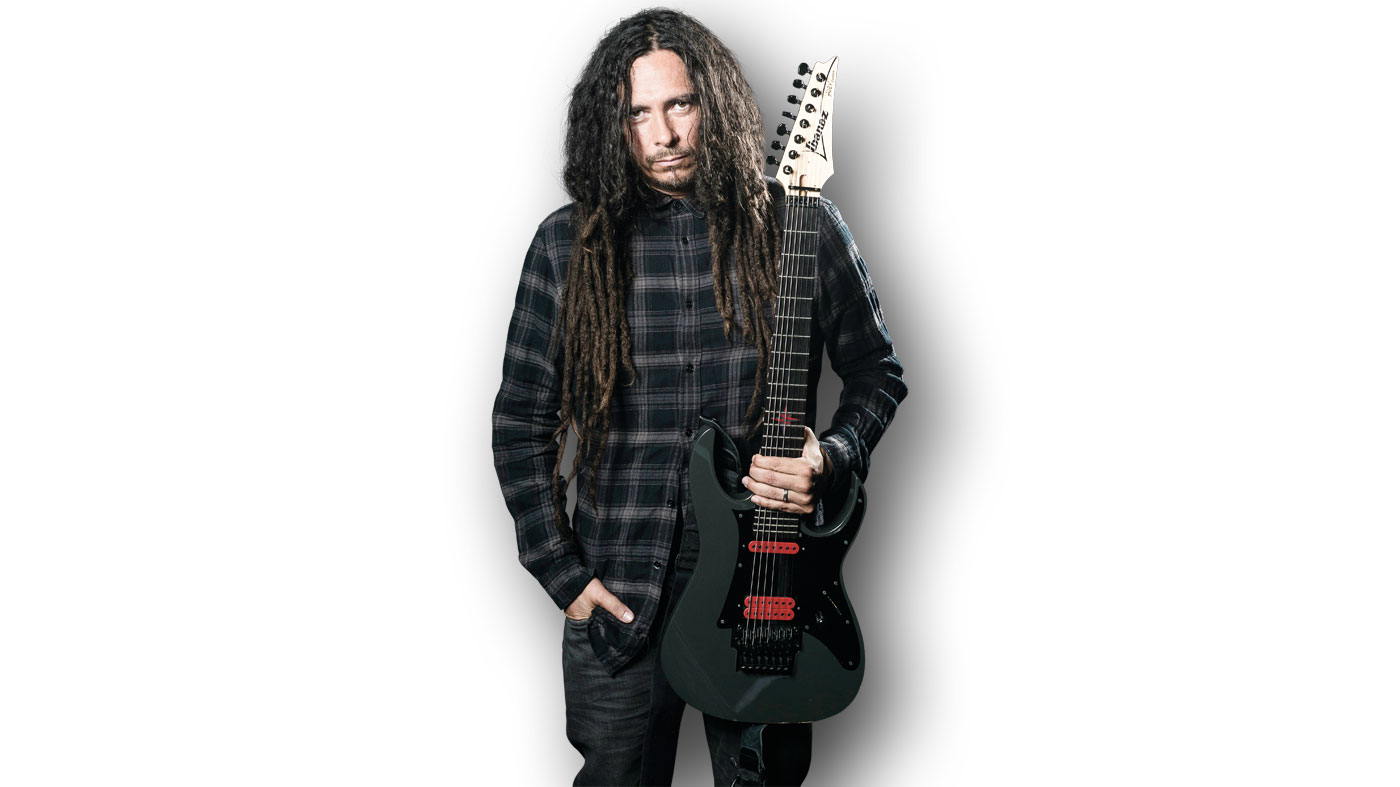
Mick: "Or a tech that knows how to use it! I'm working with [Fractal Audio] right now because I'm going to replace my rackmount effects with it. I wrote Spit It Out on this Boss rack processor - a GX700 or whatever, the only thing at the guitar shop I taught at that I could afford. But it has a humanizer effect that does vowel sounds.
"On Surfacing, I use the pitch-shifter with an auto-wah. Prosthetics has a ring modulator and a delay. I've been working with [Fractal] to get those sounds properly recreated, so I can get rid of the crap and have the most advanced-sounding effects on the planet! Also, my Rivera heads are all MIDI switchable, so I can get rid of my Ground Control, and [the Axe-FX] can take care of it."
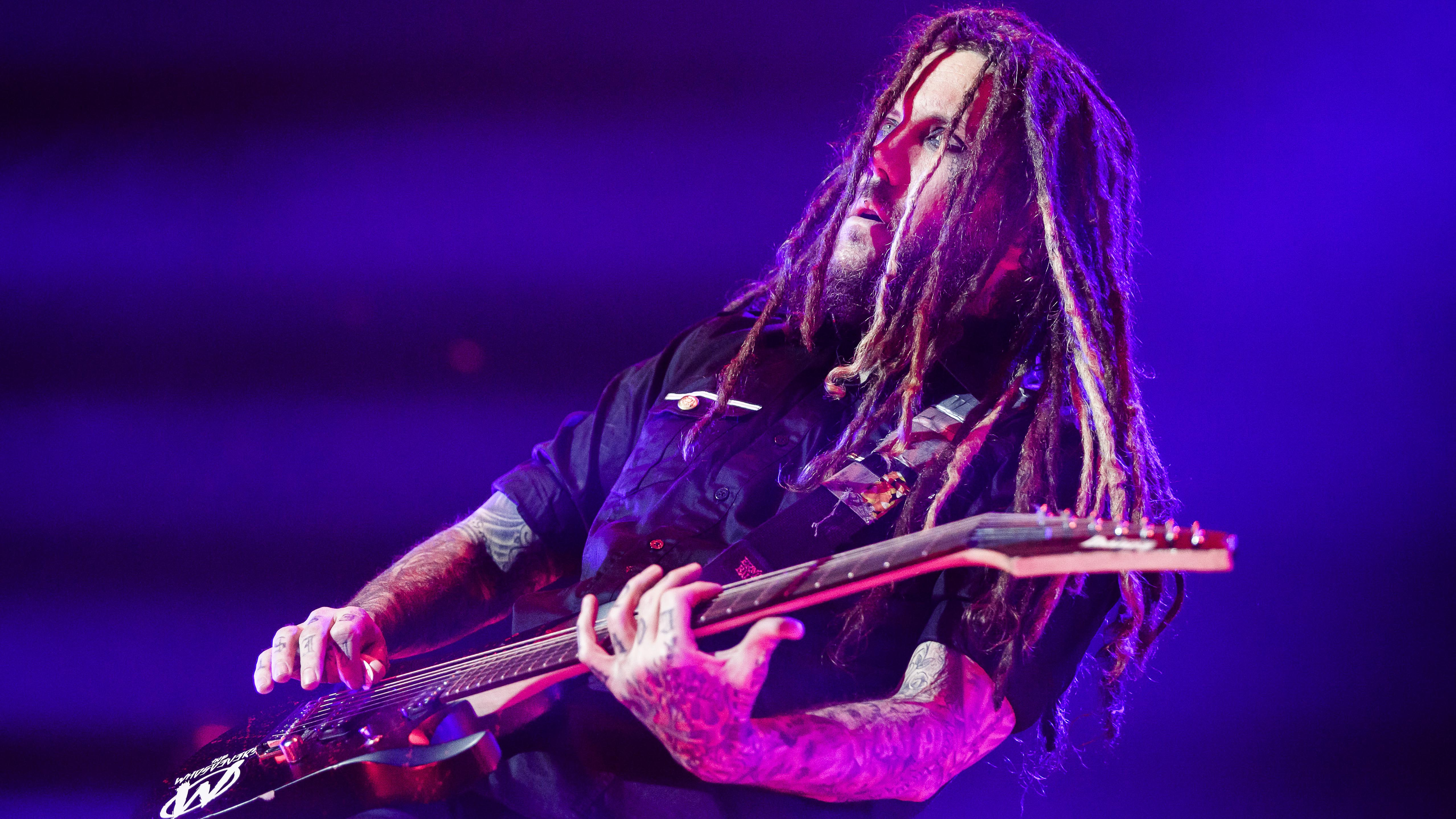
Make it gross
Does it feel that some of the sonic experimentation has gone from heavy guitar?
Munky: "I think a lot of that stuff happens in the studio. You write the song in a rehearsal room together, then once you go to overdub it's like, 'Let's try this pedal, let's try this effect.'"
Mick: "It's true for us now. On our first record, I'd just dick around with effects. Prosthetics was written when I was fucking around creating new patches. I was adjusting it and making noise to hear what a ring mod sounded like and Clown just started playing. Then Andy [Anders Colsefni] joined in and it became this jam based on that effect.
"Eyeless was the same. Sid was doing his 'wicka-wicka' stuff, and it was loud and annoying, and I was like, 'I can be gross too!', so I started going 'Ne-ne-ne-na-ninit' with this atonal shit. Joey was like, 'Keep doing that!' and we wrote the song right there.
"A lot of our first record started organically. Now, all of those noises come after. Or off Jim's computer. Half the weird shit on the new record [.5 The Gray Chapter], Jim did in Pro Tools."
Munky: "And you'd just take those tracks and pop them in?"
Jim: "We'd either reamp or try to recreate them. Some were too hard to recreate, so we'd just grab them from the session and put them into a new one."
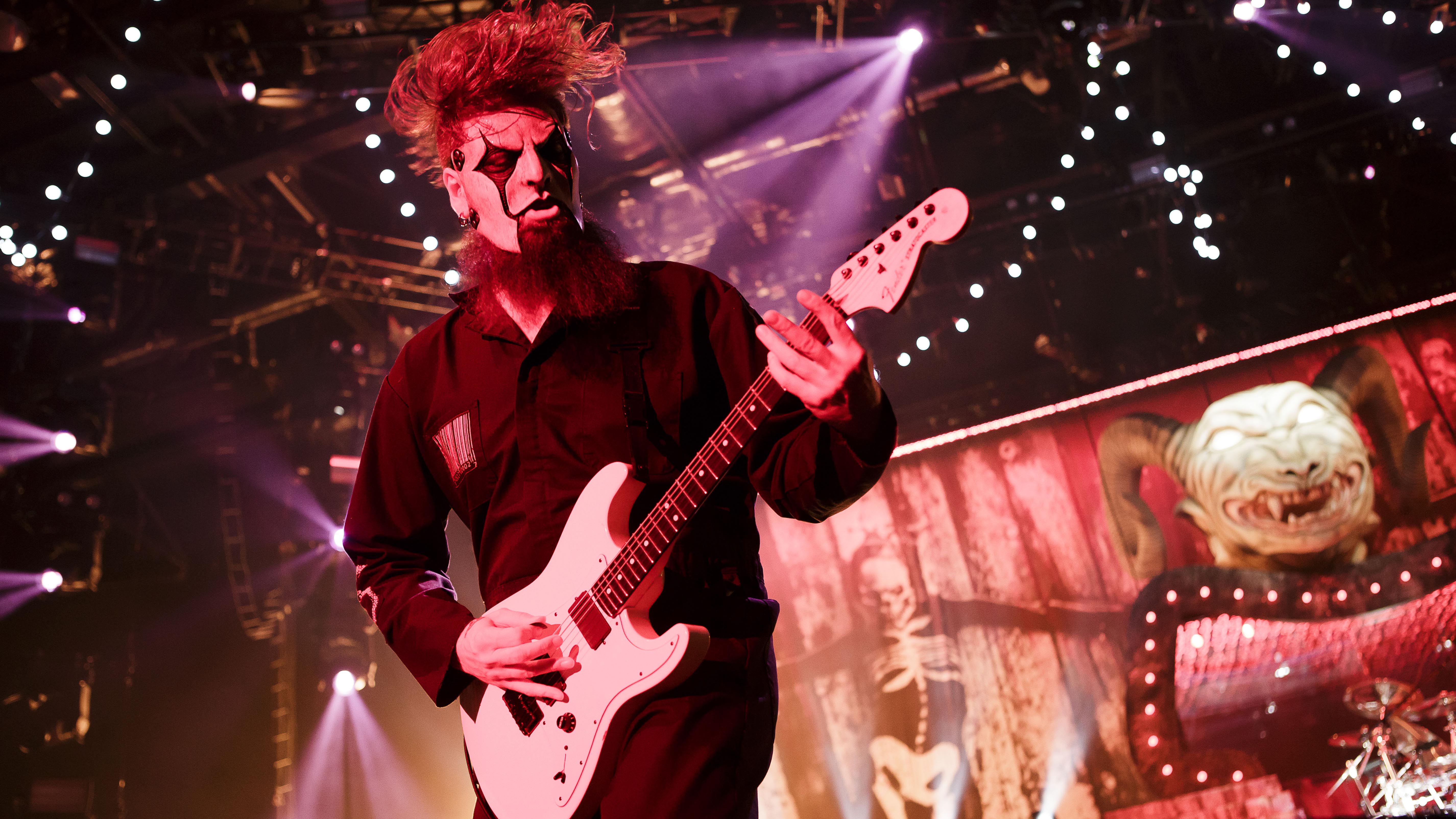
Munky: "There's a pedal called The Starve, or something, and it makes your pedals sound like the battery has had the juice sucked out of it."
Mick: "I have a pedal called the Torn Speaker, and it sounds like you've ripped the shit out of your speaker! It's like a fuzz pedal. I don't use pretty effects. Make it gross!"
Munky: "Make it gross! That's a good ending."
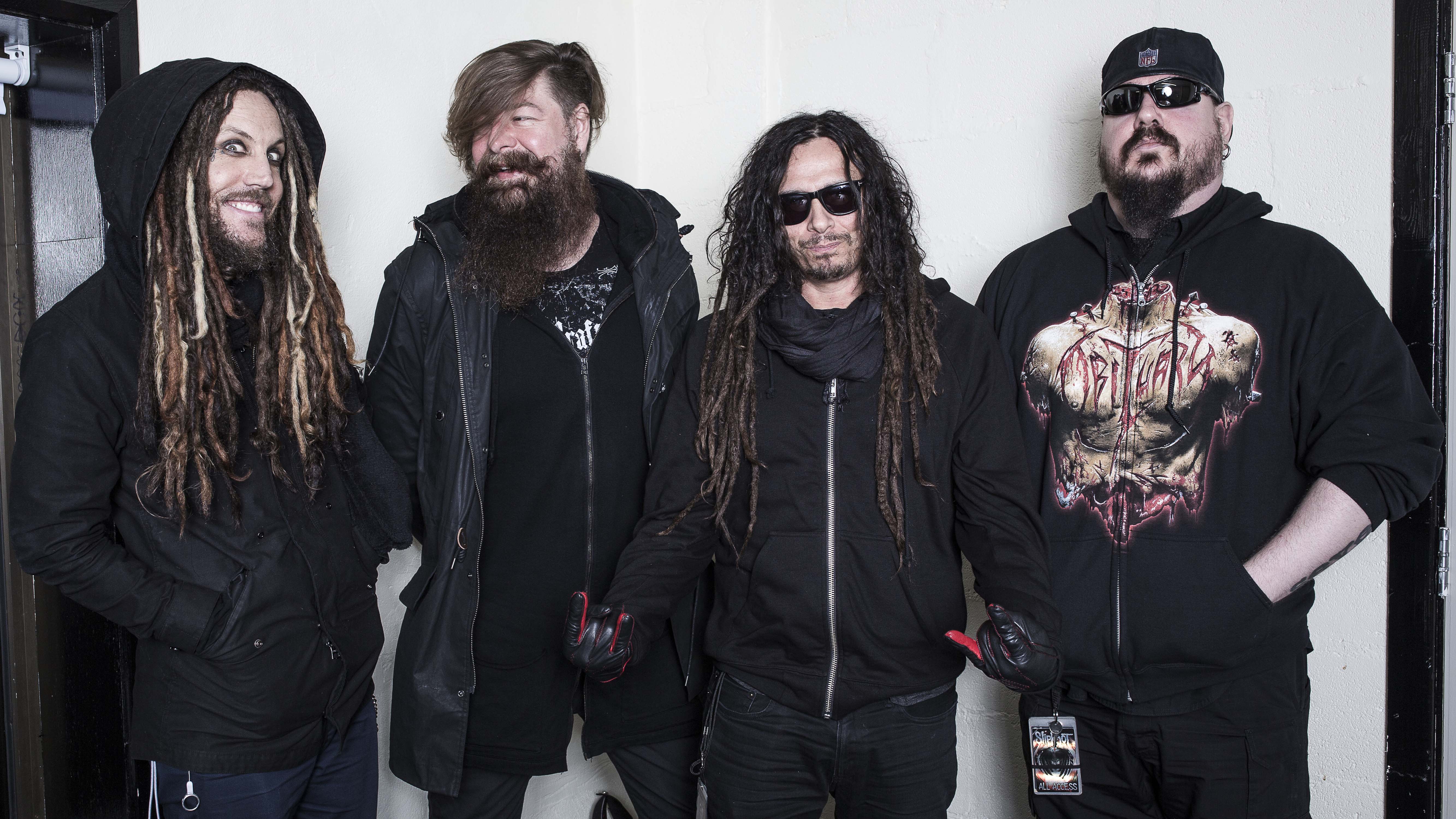
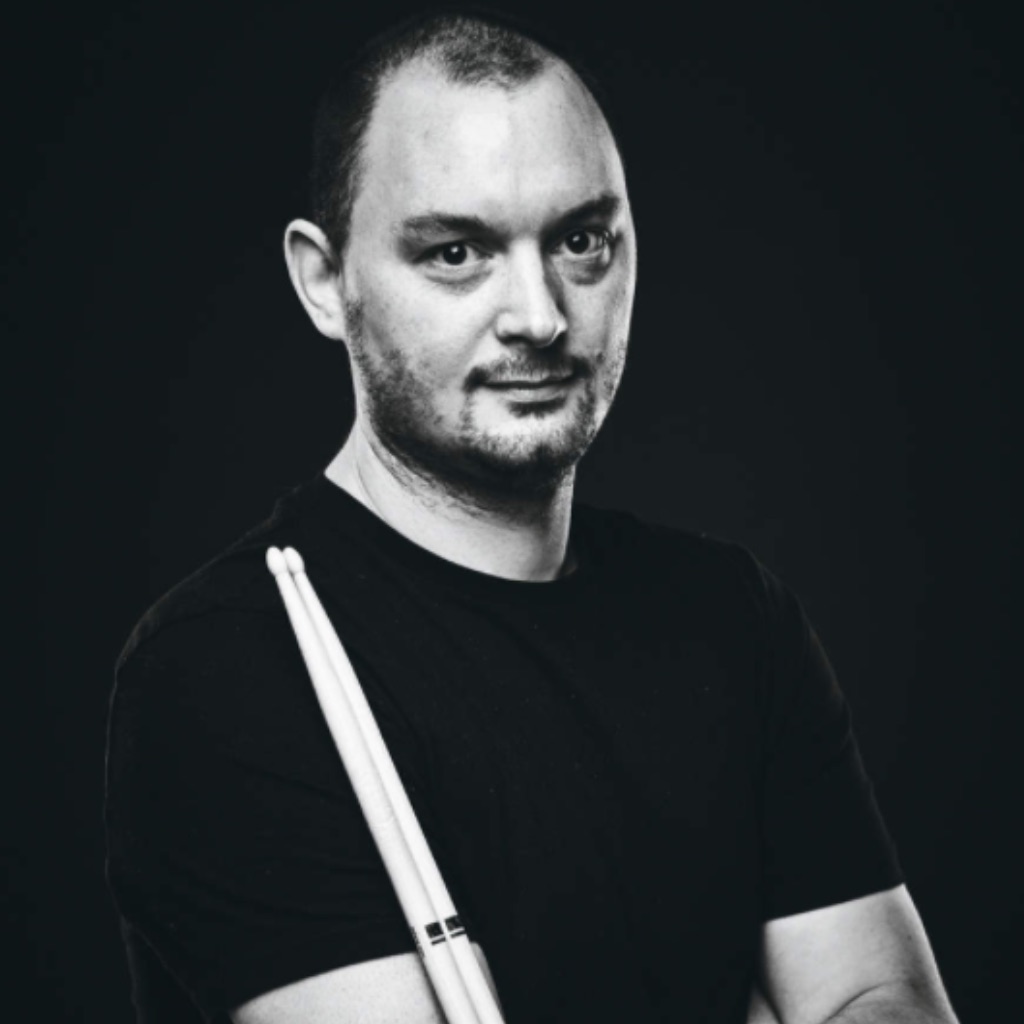
Stuart has been working for guitar publications since 2008, beginning his career as Reviews Editor for Total Guitar before becoming Editor for six years. During this time, he and the team brought the magazine into the modern age with digital editions, a Youtube channel and the Apple chart-bothering Total Guitar Podcast. Stuart has also served as a freelance writer for Guitar World, Guitarist and MusicRadar reviewing hundreds of products spanning everything from acoustic guitars to valve amps, modelers and plugins. When not spouting his opinions on the best new gear, Stuart has been reminded on many occasions that the 'never meet your heroes' rule is entirely wrong, clocking-up interviews with the likes of Eddie Van Halen, Foo Fighters, Green Day and many, many more.